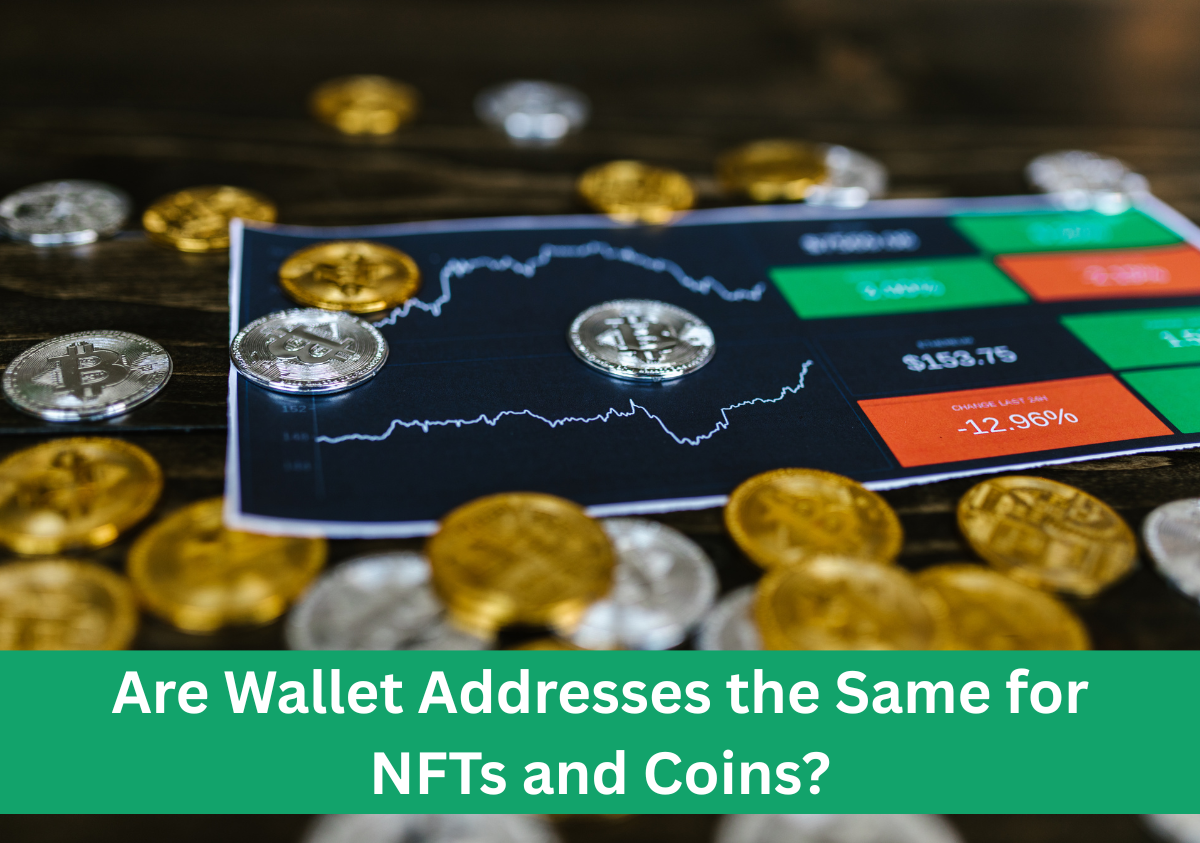Are Wallet Addresses the Same for NFTs and Coins?

With the advent of crypto, new users are often perplexed by the question: Are wallet addresses the same for NFTs and coins? While holding your ETH, BTC, or determining whether a digital art piece is more valuable, knowing the details about wallet addresses and how they operate concerning various asset types is worth knowing. This guide explains it simply so you can guard it safely and securely.
What Is a Crypto Wallet Address?
A crypto wallet address is like your email address for receiving crypto. It is formed of characters, letters, and numbers that senders generate against your public key through a process known as public-key cryptography. You share the address with a receiver to send a digital asset like Bitcoin, Ethereum, or tokens.
Whether you're storing coins or NFTs, the crypto wallet uses the same address structure to identify ownership on the blockchain. Knowing how to find your crypto wallet address is one of the first steps to using a cryptocurrency wallet.
Coins vs NFTs: What's the Difference?
Coins
Coins are fungible in nature. This literally means that one bitcoin or Ethereum is regarded as equal to another, hence following the ERC-20 standard for Ethereum or being native like BTC.
NFTs
Non-fungible tokens or NFTs are unique and different in their standards from ERC-721 or ERC-1155. Each NFT represents a unique creation on a blockchain for art, music, or in-game items.
So, Do NFTs and Coins Share the Same Wallet Address?
The short answer is yes, at least for most wallets and networks.
A single crypto wallet address in Ethereum can keep ERC-20 tokens and ERC-721 NFTs. Your ETH coins and your NFTs can be deposited at the same address.
For example:
-
An Ethereum address starting with 0x can hold ETH, DAI, and just about any NFT from OpenSea and Rarible.
-
A bitcoin wallet address, on the other hand, is used only for BTC and does not support NFTs.
Depending on the wallet compatibility and network, your crypto wallet address can be the same for coins and NFTs.
NFT Support Depends on the Wallet, Not the Address
While the wallet address may differ, not all wallets display NFTs properly.
-
MetaMask supports both coins and NFTs, but may require enabling NFT support manually.
-
A ledger is a hardware wallet that is stored securely, but you’ll need a third-party viewer to see NFTs.
-
Trust Wallet supports both tokens and NFTs on multiple blockchains.
This confuses some because they go out searching to find their crypto wallet address, or "find" their crypto wallet address, thinking they need separate addresses. They don't—only their wallet app must support both asset types.
Network Matters: Address Compatibility Across Chains
Not all blockchains behave the same:
-
Ethereum and many Web3 networks support both coins and NFTs at the same address.
-
Solana, Tezos, and other blockchains use different formats and standards.
-
If you send an NFT to a wallet address on an unsupported blockchain, you could lose access to it.
Always verify that your crypto wallet supports the blockchain and the asset type you're dealing with. This is especially important when using decentralized applications or participating in DeFi.
Protecting Your Crypto and NFTs in One Wallet
To manage both safely:
-
Use a multi-asset wallet that supports ERC-20 and NFT standards.
-
Choose hardware wallets like Ledger for cold storage of high-value assets.
-
Use a viewer or dashboard like CoinLedger to track your tokens, NFTs, and digital assets together.
-
Enable seed phrase and private key backups to avoid loss.
-
Be mindful of phishing attempts and fake QR codes that can trick you into sending assets to the wrong crypto wallet address.
Common Mistakes to Avoid
-
Assuming NFTs need a separate wallet address.
-
Sending NFTs to an exchange wallet that does not support them.
-
Using wallets that don’t show NFTs, making you think they're gone.
-
Mixing up addresses between networks like Ethereum and BSC.
Conclusion
Your crypto wallet address can usually handle coins and NFTs, but make sure both the wallet and the network are compatible. Imagine a bank account containing different types of currency for a single dollar position-marketing, so to speak, one account with multiple assets.
Before sending or receiving NFTs or tokens, always:
-
Double-check compatibility.
-
Confirm your address using a QR code or a trusted source.
-
Back up your private keys and seed phrase.
-
Use wallets that support both ERC-20 and NFT standards.
Having a thorough understanding of your crypto wallet address helps you not only to better control your assets and keep your BTC and ETH safe but also to safely partake in the full potential of Web3, decentralized finance, and decentralized applications.
- Art
- Causes
- Crafts
- Dance
- Drinks
- Film
- Fitness
- Food
- Jocuri
- Gardening
- Health
- Home
- Literature
- Music
- Networking
- Alte
- Party
- Religion
- Shopping
- Sports
- Theater
- Wellness



